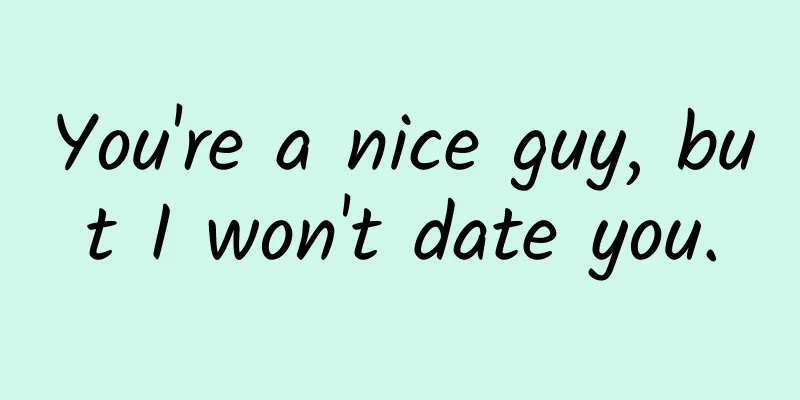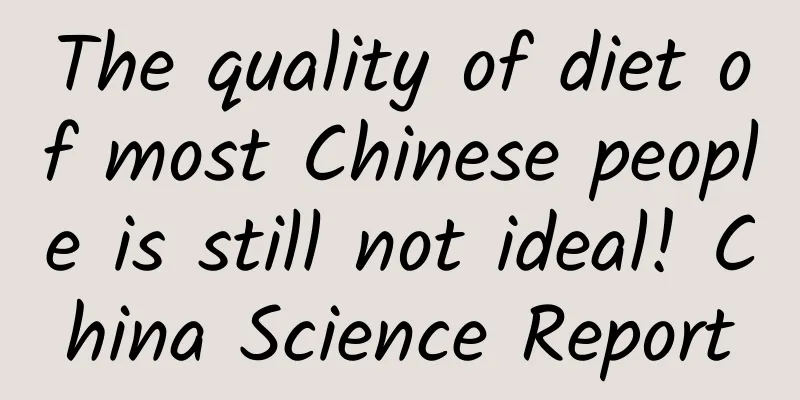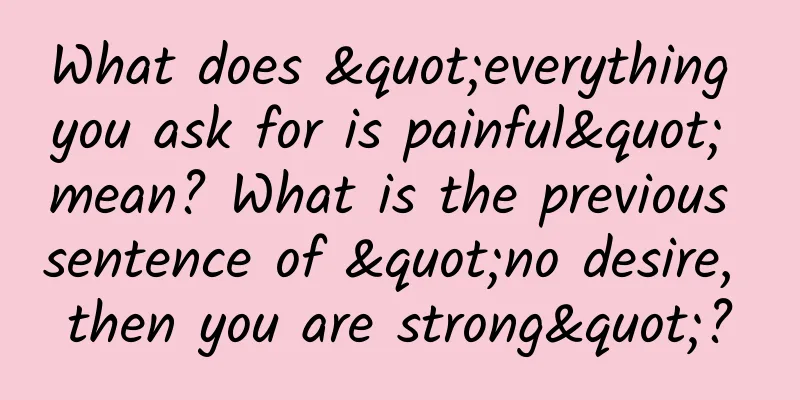You're a nice guy, but I won't date you.

|
Leviathan Press: When we help a stranger, such as a beggar or a child who has dropped out of school, is this a kind of self-kitsch or some kind of pure altruism? The former is mainly to satisfy the need for self-touching (dealing with the self's "compassion that has nowhere to go"), and if the latter exists (altruism), is its essence still a kind of selfishness? That is, the good deeds for others are ultimately for the well-being of oneself. A friend pointed out that there is a viewpoint against psychological egoism that some people sacrifice far more than they get in return (for example, a captive was tortured to death but did not tell on others), so it cannot be fully explained by psychological egoism. Of course, this is another question. Back to this article. I believe many people have thought about this question: Will we fall in love with a great good person? Or, will you live with a consequentialist? There are countless examples of this question, such as a vegetarian who regards the welfare of animals as important as that of humans, a person who believes that saving out-of-school children is no different from taking care of you... In the TV series The Good Place, the main character, Eleanor, is initially put off by Chidi because he's always trying to teach her how to be a good person. That's why everyone hates the moral guardian. © Colleen Hayes/NBC/NBCU Photo Bank via Getty Images Picture this: You've been working hard all year. You're exhausted. Every cell in your brain and body is crying out for a relaxing vacation. Luckily, you and your partner have managed to save $3,000. You suggest a trip to Hawaii—the blue waters are calling! There's just one problem: Your partner refuses, and thinks you should give the money to charity instead. Just think about how many malaria-preventing bed nets $3,000 could buy for children in developing countries! You might start to ponder a question: Why does my partner seem to care more about a stranger on the other side of the world than me? Philosophers will tell you that your partner is probably a utilitarian or consequentialist, someone who believes that an action is moral if it produces good consequences, and that everyone should benefit equally from those consequences, not just those closest to us. In contrast, your response suggests that you are a deontologist, who believes that an action is moral if it fulfills a duty, and that we have certain duties to certain people—our spouses, for example—so we should prioritize our spouses’ needs over those of strangers. If you’re annoyed by the consequentialist reaction to the Hawaiian vacation, you’re not alone, according to research from Yale University’s Crockett Lab. Neuroscientist Molly Crockett has conducted several studies to determine how we perceive different types of moral agents. She found that when we’re looking for a mate or a friend, we strongly tend to choose deontologists, viewing them as more moral and trustworthy than consequentialists. (www.sciencedirect.com/science/article/pii/S0022103117308181) In other words: if we’re looking for a date or a friend to hang out with, we don’t need to look any further than the various consequentialist super-do-gooders. (It’s worth noting that deontologists can also do good deeds every day, but in a completely different way.) Crockett’s research raises many questions: Why do we distrust consequentialists even though we admire their altruism? Is our distrust justified, or should we try to suppress this impulse? And what does this distrust mean for the effective altruism movement, which holds that we should invest our resources in causes that will do the most good for humanity, wherever they are in the world? I reached out to Crockett to discuss these issues with her. The following is a transcript of our conversation, edited for length and clarity. Sigal Samuel: In the past, it was usually philosophers who studied questions of morality and altruism, and they were particularly concerned with the dilemma of sacrifice. The most famous sacrificial dilemma is the trolley problem: should you actively choose to turn the out-of-control trolley so that it kills one person in order to save the lives of five people on the other track? Consequentialists say yes, because you are maximizing the overall good, and the consequences are what matter. Deontologists say no, because you have a duty to "not kill as a means to an end," and your duty is what matters. In your research, you do look at these types of sacrifice dilemmas, which involve doing evil. But you also look at "impartial beneficence" dilemmas, which involve doing good, and specifically the idea that when we do good, we shouldn't prioritize our family and friends. Why did you decide to look at these dilemmas? Molly Crockett: On a psychological level, studying “impartial kindness” is very rewarding because it’s at the heart of many of the conflicts we encounter in our social relationships as the world becomes more globalized, and we start to think about how our actions affect people we’ll never meet. To be a good global citizen today, we have to fight against a strong psychological tendency to prioritize family and friends. So we wanted to study the social and interpersonal consequences that people might experience when they hold a consequentialist view. West: So, what did you find? MO: We found that, in general, when people are presented with a sacrifice dilemma, they significantly favor non-consequentialist social partners. If people say that sacrificing one person to save others is wrong, we trust them more. We see the same pattern of preferences when it comes to the just-good dilemma. The tendency is not as strong as it is in the sacrifice dilemma, which I think makes sense because a beneficial action tends to leave a smaller psychological impression on us than a harmful one. But we still see that we tend to prefer non-consequentialists when deciding who to be friends with or mates with. © phys.org SW: There is one exception to this in the Just Good Acts Dilemma, right? It turns out that when we're looking for a political leader, we actually prefer consequentialists. To me, my intuition is that we would prefer different types of moral agents for different social roles. Was your result surprising? MO: Well, it's interesting that, up until now, moral psychology has looked primarily at hypothetical cases involving strangers. But new research suggests that, in fact, the relational context is very important when it comes to judging the morality of others. I recently began working with Margaret Clark at Yale University, who is an expert on intimate relationships, and we are testing some of our assumptions about how moral obligations are unique to certain relationships. Here's a classic example: suppose there's a woman named Wendy who could easily provide a meal for a young child but doesn't. Did Wendy do something wrong? That depends on who the child is. If she failed to provide a meal for her child, then she definitely did something wrong! But if Wendy is a restaurant owner and the child is not starving, then there is no specific interpersonal relationship between them that creates a specific obligation for her to feed the child. SW: Exactly. Philosophy hates contradictions and inconsistencies, and applying deontology in some cases and consequentialism in others may seem contradictory. However, applying different moral philosophies in different relational contexts may be the most reasonable approach. The explanation you offer in your research for why we prefer to marry or befriend deontologists is this: If I’m looking for someone to marry, then I’d naturally want that person to prefer me over some stranger in some other country. But let’s push that line a little further: Is it possible that our preference isn’t because we want to find someone who prioritizes us, but because being around radical good people makes us feel bad about ourselves — in other words, because we feel like immoral assholes compared to them? MO: That’s a very interesting question, and it’s something we haven’t tested empirically, but it’s very consistent with research by Benoit Monin, a psychologist at Stanford, on do-gooder derogation. He basically showed this phenomenon that you predicted, that people feel less warmly toward people who are extremely moral and altruistic. His research showed that the extent to which people dislike vegetarians is related to their own feelings about the moral conflict that eating animals raises. (journals.sagepub.com/doi/abs/10.1177/1948550611415695) © RNZ West: Yeah, we don't like being around people who make us think about uncomfortable things. Especially if they're very direct or opinionated and you have to be around them all the time, like if they're a romantic partner. Your research also involves something called the partner choice model. Can you explain that a little bit? MO: Mate selection is a mechanism by which personality traits evolve because they make people more likely to be selected as social partners. Many studies have shown that our preference for cooperation evolved through the mechanism of mate selection because people who are naturally more cooperative are more likely to be selected as social partners. They benefit from being selected through social capital and reproduction, and then pass these traits on to the next generation. My view is that some of our moral intuitions may be explained by the same mechanism. To the extent that our deontological intuitions signal to others that we are better social partners, this makes us more likely to be selected, and so they are passed on to the next generation. SW: Wait, expand on this evolutionary explanation a bit. When you say “through reproduction,” do you mean that deontological parents are more likely to educate their children in a deontological way? MO: That's one thing, and another thing... this is more speculative, but maybe there's a genetic component to deontological moral intuitions, so that they can be passed down hereditarily. Obviously, there's no gene for deontological intuitions. There's not a one-to-one mapping between genetics and complex psychological traits. But to the extent that these traits emerge from brain processes (and there's a lot of evidence that they do), there might be a heritable component. SW: This reminds me of neurophilosopher Patricia Churchland’s new book, Conscience, which talks about the biological basis of morality. I recently discussed with her how differences in the brain shape our moral positions, and how these differences are likely to be highly heritable, since they are based on genetic differences. So genes don’t tell the whole story, but they play a role. MO: Absolutely. Overall, my results are very consistent with Churchland's views. I think her idea is consistent with some of our empirical research showing that when people decide whether to benefit themselves by harming others, their brain activity tracks how others will disapprove of this harmful choice. Conscience may be the brain's prediction of how others will view our behavior. Peter Singer: A famous Australian philosopher, animal liberation activist, professor of bioethics at Princeton University, and honorary professor at the Center for Applied Philosophy and Public Ethics at the University of Melbourne, Australia. He specializes in the study of applied ethics and thinks about ethical issues from the perspective of utilitarianism. He is famous for his book Animal Liberation and his paper Famine, Affluence and Morality. © The Conversation SW: When you write about the implications of your research, you talk specifically about effective altruism, a movement championed by Peter Singer, who is probably the most influential utilitarian philosopher alive today. You say that the findings from these studies suggest that if you are an effective altruist, people’s perceptions of you may be a hindrance to you, which may affect the movement’s ability to expand. What can effective altruists do to mitigate potential negative perceptions of themselves? MO: I think there are several possibilities. The first is this: We have shown in other studies that when people rate how praiseworthy good deeds are, they consider both the benefits of the act and how positively they feel when they do it. You could even say that our data suggest that when people rate an act as praiseworthy, they weigh how good it makes you feel more heavily, so that people might think that a good deed that brings very little benefit but makes you feel very warm inside is actually more praiseworthy than a good deed that feels detached and cold but brings a lot of benefit. Based on this perspective, effective altruists might emphasize the personal satisfaction that might come from donating to effective causes and talk about their personal experiences participating in the movement, using that context to describe what it means to them. Now, in my lab, we're starting to think a lot about narratives—how the stories we tell ourselves and others about our behavior make us feel like moral people, and how those stories actually change our behavior in the long run? Narratives are very powerful in shaping our psychology, and I think the effective altruism movement has in some ways missed an opportunity to tap into that. SW: So if I have a narrative about myself that emphasizes that a way to give that has more evidence to back it up and is less costly and more effective actually makes me happy and gives me satisfaction, telling that narrative might make people more interested in my way of doing good? MO: It's possible. Of course, telling this story might conflict with the do-gooder derogation effect. So you have to be careful. I think this conversation just illustrates how challenging it is to change moral behavior. You can try to change behavior by pushing many different levers, but they often conflict with each other. So if you push one lever, it can inadvertently push other levers that counteract it. We're dealing with a complex system. By Sigal Samuel Translated by Kushan Proofreading/Rabbit's Light Footsteps Original article/www.vox.com/future-perfect/2019/8/27/20829758/altruism-morality-molly-crockett-study-dating-do-gooders This article is based on the Creative Commons Agreement (BY-NC) and is published by Kushan on Leviathan The article only reflects the author's views and does not necessarily represent the position of Leviathan |
<<: Microscopic health has eight dimensions! Cell article defines health
Recommend
What's wrong with not having clean period for half a month?
If the menstrual period is not clean for more tha...
Tips for women to maintain their skin
Modern women are very keen on the pursuit of beau...
Do I need to fast to check estradiol and progesterone?
Estradiol is a hormone secreted by the ovaries. I...
Is the number of days of pregnancy on ultrasound accurate?
Many people who want to know when they are pregna...
Causes of posterior vaginal wall prolapse
Women all want their reproductive system to be he...
Normal progesterone levels at 2 weeks of pregnancy
In fact, the early stage of pregnancy is a very c...
A few pieces of clothing that women must wear throughout their lives
The editor has summarized that a woman may be fat...
Can Streptococcus agalactiae be used for vaginal delivery?
In our daily life, there are many types of bacter...
Will staying up late affect menstruation?
In our daily life, many women have irregular mens...
TechInsights: Global 5G smartphone penetration is expected to reach 72% in 2024
TechInsights expects the 5G smartphone market to ...
What should I do if I have pelvic inflammatory disease and feel soreness on both sides of my lower abdomen?
I believe that many women are familiar with pelvi...
Girls who love to laugh have many wrinkles, unless she...
This article was first published by Hey Stone Hea...









